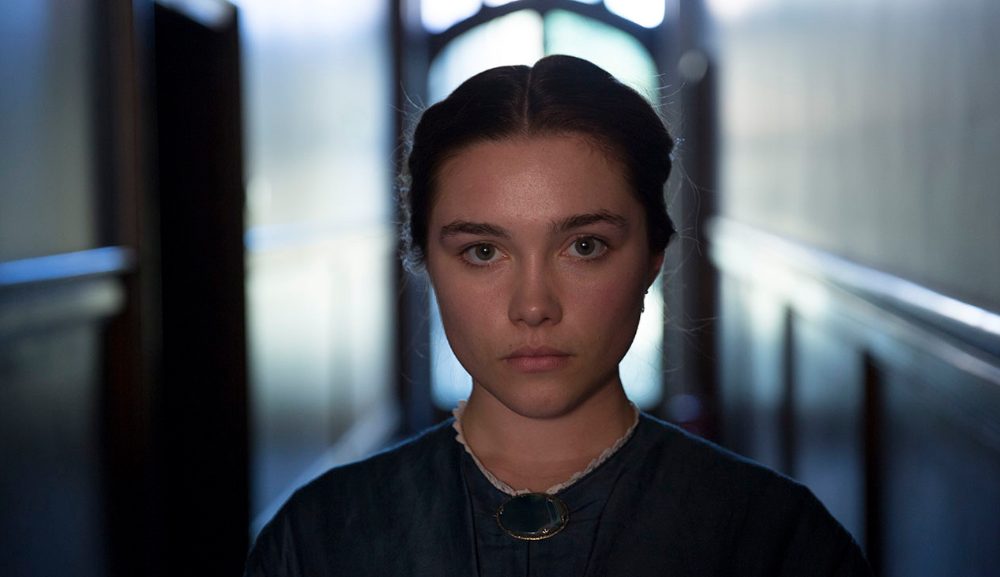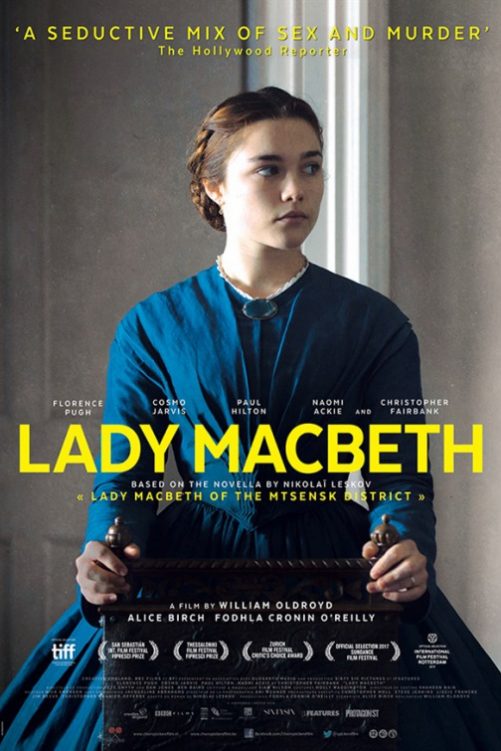Lady Macbeth

“Come, you spirits / That tend on mortal thoughts, unsex me here / And fill me from the crown to the toe top-full / Of direst cruelty.” So said Lady Macbeth in her most famous passage of Shakespeare’s play, which would cement her reputation as one of the most progressive female characters of her time. And in William Oldroyd’s debut feature – itself based on Nikolai Leskov’s 1865 novel – he grapples with the archetype of this murderous spouse in an attempt to illuminate patriarchal problems of the present. Yet the problem is that Lady Macbeth is too knowingly modern to work as a period piece, and too antiquated in its depictions of societal norms to work as anything progressive. It’s a pointless if stylish exercise in blood-stained corsets that might just be a bit too “male” for its own good.
Admittedly, there’s a fantastic performance at its core. Florence Pugh – best known for her acclaimed debut in Carol Morley’s The Falling – plays Katherine, who’s sold into marriage with Alexander (Paul Hilton). He’s an archetypal cad, bearded and humourless, humiliating his bride in gender-specific ways at every opportunity. But when he leaves on business, Katherine finds herself liberated, embarking on a passionate affair with handsome farmhand Sebastian (Cosmo Jarvis). And then the murders begin.
The idea of the piece is that Katherine’s mind is so warped by patriarchal abuse that she turns to murder as a form of liberation, with echoes of Shakespeare’s play informing how much (or how little) feminine values have progressed. But while Oldroyd does nice work in contrasting stuffy interiors with wild, earthy exteriors, there’s a real inelegance to the way the film depicts its war between genders. The men are all growling, one-dimensional beasts, and the central character is a transparently modern creation: a time-traveller who’s clearly disturbed from the outset, thus weakening the effect of her transformation. There’s a particularly insulting scene in which Sebastian forces himself on Katherine, and she finds herself turned on – a horrible trope that’s treated with precious little of the nuance that made Elle such a successful provocation.
Combine this with a well-meaning but marginal treatment of race – that calls attention to the voicelessness of minorities in period work, then proceeds to give no voice to them – and you have something that’s noble in intention but fatally clumsy in execution.
Sam Gray
Lady Macbeth is released in selected cinemas on 28th April 2017.
Watch the trailer for Lady Macbeth here:
https://www.youtube.com/watch?v=dRC4JpK-D78

























Facebook
Twitter
Instagram
YouTube
RSS